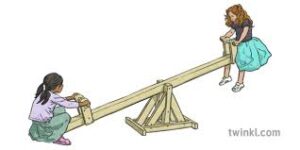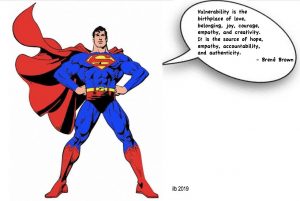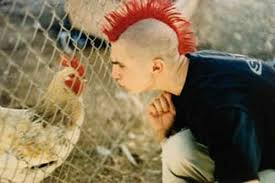Blog
The Toyota invented exercise of FIVE WHYs is used to reveal the root cause of a problem. TRY THIS AT HOME, with people in your family business. Begin with a statement, a la: “We are a business run by a family” and then ask WHY? and together answer that one; ask WHY? again, and so on. At 5 or so WHYs you might have gotten to a useful discussion topic.
Other possible beginning statements could be:
– We believe in rewarding talent, but we also pay for genetics
– We get along mostly, but don’t work out our conflicts well
– We can see continuing this into the next generation, but wonder if we shouldn’t just try to sell it (note: it can be tricky if the first statement isn’t simple enough)
It helps to build in some rules, like trying to be tactful and sensitive; be curious and reasonable about where the thinking goes; remember this is a thought experiment, not a policy discussion. Don’t aim for deliverables, as much as improved communication, but do propose solutions you might refine and implement.
CHECK YOUR WORK LIKE THIS (written by perplexity.ai)
To examine the results of the 5 Whys and ensure they make sense without going off on a tangent, consider the following methods:
• Review for Logical Consistency: Ensure each “why” logically follows from the previous answer. If the chain of causality seems weak or unrelated, revisit the steps.
• Check for Assumptions: Verify that answers are based on facts rather than assumptions. If assumptions are present, validate them with data or further investigation.
• Evaluate the Root Cause: Determine if the identified root cause is plausible and addresses the original problem. If not, consider additional “whys” or alternative analysis methods.
• Use a Cause-and-Effect Chart: Create a fishbone diagram to visually map the causes identified during the 5 Whys. This can help identify if the analysis has strayed from the main issue.
• Team Review: Have the team review the analysis collectively to ensure everyone agrees on the logic and conclusions drawn from the process.
Obviously there are pluses and minuses to working with your family members. One crucial ingredient is trust; and building trust includes being honest, vulnerable, allowing yourself to be known. Time spent getting to know each other is valuable (even if you then realize you should not be in business together). Prioritize time to explore who you are together, being curious and caring. Take turns for 2 minutes each, interviewing each other with great questions. Aim to value each other more with this sharing. Some questions you might ask include: What is something you know about yourself, that you didn’t realize when you were much younger? What is the most important quality in a friend, that is not the obvious ones? If you weren’t worried about money, how would you use it differently? After each Q+A, resist commenting, just take it in as new info about the other person (and maybe yourself). Afterwards, notice if it increased trust, or shocked you what you didn’t know about the other person (or yourself). Don’t run out of questions, just make them better and better.
How to Avoid Common Challenges in Family Business (more)
Though a code of conduct is among the recommendations for family businesses who want to improve communications and relationships, I’ve met few who have one, except for a loose unwritten general norm.
Of course, the perfectly behaved business family, full of good will, kindness, generosity, and fairness needs this less than the many who struggle with tensions, assumptions, and shenanigans.
The most harmonious and professional family businesses make it all look easy; but if that’s not you, you know it isn’t, and unwritten codes are not as useful as sitting down to figure out the rules and how to make them work for you.
It often helps to have a neutral and skilled facilitator to guide this process, so that it doesn’t become sniping. Maybe start by listing your shared values, ie: transparency, meritocracy, clarity and more.
When someone who suggests transparency is clearly not transparent, don’t yell “hypocrite!” Instead, ask to hear more, ask for examples, ask others to comment on the benefits of transparency and the risks of opacity.
If “transparency” makes its way into the code of conduct, also consider including examples, ie: “We will always strive to be as transparent as possible and appropriate; when discussing finances, policies, compensation, succession and other crucial topics in our family business.”
Also consider how your particular situation works well. A father and son in business included in their Code of Conduct we built together “When we have conflicts to manager, we will climb a mountain together and discuss it.” They had found this method worked for them, and when they didn’t climb the mountain, they didn’t have the discussion.
In deciding who in your family is offered a role in the business, in addition to talent and experience, you might appraise their buy-in to the living document that is your family’s Code of Conduct.
You could also discuss it with applicants hoping to become non-family managers, and see what they think. Some people have better skills than others, at working for another family’s business. See if they respect the challenges your family faces.
There is also the idea of a Family Creed, deeper than how to behave.
Here’s an example from the family that has run Kikkoman for centuries: Make Haste Slowly
Family businesses who want to attract talent should look at the job and company as a job candidate would:
- are family and non-family members able to use their talent and experience to make money achieving the company’s purpose?
- do family members get treated better or worse, because of their family status?
- is there clarity about which hat each person is wearing? (family, manager, owner, or combinations of those)
- is there a commitment to manage conflict in a healthy way?
- is the leadership honest and open about strengths and weaknesses; not overly optimistic or pessimistic?
- are family members in and out of the business adequately informed and involved in what it means that their family owns a business, that also guides who is offered a role, drives the need for professionalism, and shines a light on the special need to work ON the family business, and more?
- does the family have decent communication, trust, sanity, as a family, aside from their business life?
- does the family have frank conversations about the future of the business, a la succession, death, threats, without secrets?
One of the best things a family business can do, to attract non-family management, is to work on yourselves as a business family. If you do easily attract and retain non-family talent, that is a very good indicator that you are getting it right (and vice versa).
Family businesses can tend towards inadequate governance, partially because of the less structure of family than business, but also to avoid frank discussions about merit, reward, death, conflict, etc. I think many family businesses could benefit from a simple set of procedures and perspectives like EOS, as described in the book Traction. It will help to immunize the business from some of the biases and confusions of the family involvement. Family members who can’t align with such a plan might not be good enough collaborators, in any case; so maybe yet another filter to apply, when choosing who should enter. There are capable experts to implement EOS, both “certified” and smart local consultants who respect EOS. You can also start by having an informal book reading group, discussing Traction and Rocket Fuel, by Gino Wickman. Maybe invite business owners near you to come and discuss how EOS works for them. Plus, I think an EOS company is easier to sell, attracting buyers who want a well run business they can step into, or merge it into their own EOS-managed company. For many family businesses having trouble managing themselves, EOS can help you row in the same direction, and discover a clear path forward.
One of the advantages of a family business is agreeing on values and guiding principles. Then you have a way to measure if your behaviors and attitudes are appropriate, “constitutional”, professional, not to mention familial. When I’ve mediated conflicts with business family members, it’s helped to begin with values. That way, when someone says to their relative/partner “you’ll see the books over my dead body” it can be pointed out that “but you said you value transparency, and I’d rather you align to your values than make me murder you.” Values are easier to cast in stone than live day to day, but that is what will make your company great and your family safe and sane.
To ensure that the right family members join for the right reasons communicate to growing children and young adults that the business is an opportunity, a meritocracy, not a safety net. It may not be a passion for all, but to be fulfilled and successful as one hopes to be at work, you should at least like it, at least be pretty good at it, and at least be someone whose compensation has a decent return on investment to the bottom line. There’s some 162 million jobs in the US, so nobody must work with their family business, if it doesn’t check enough boxes.
It is the rare business family that has ample supplies of goodwill, business savvy, leadership, collaboration, communication, and all the rest. Where those are insufficient, good policy is needed, and for that, good discussions and thinking, that is both practical and philosophical. A big part of family business success is the deliberate creation of systems that help family act professionally, and help the business environment to be kind and generous, the way families should be. Family business is the ultimate oxymoron (ie: jumbo shrimp) and needs to be respected for the unique care and feeding it requires.
I’m reading “Smart Brevity” by the people at Axios/ Politico, on the benefits of short pieces, as people don’t read more than 200 words, and like bullets (as do I); so here’s my new style of occasional blog:
11/13/2022 130 words, 30 second read
I HAVE BEEN DOING EXECUTIVE SEARCH, AND READING MANY RESUMES. They often do tell much about the person, and good for that candidate who can come alive on the page a bit. I have suggested to a few people that they add a section, that reveals more about you, so you’ll make the cut, earning you a conversation with those searching. Tell about your characteristics as a person, showing your self-awareness, and ability to manage and improve yourself. You might also consider creating your own version of an Owner’s Manual of You; or tap into the results of a personality assessment you think got you right. Imagine the resume reader being impressed with you as someone who is properly in their own driver’s seat, making all the right course corrections.
and here’s my older, longer blogs – feel free to read the whole thing, not just 200 words!!
It has been a while since everyone started feeling entitled to “diagnose” a troubled person they know as “on the spectrum .” It’s a bit disrespectful in so many ways, but it does make you think: who decided what the ends of the spectrum should be?
.” It’s a bit disrespectful in so many ways, but it does make you think: who decided what the ends of the spectrum should be?
Aside from your everyday annoying person being characterized by you or me as autistic, do we not all fall somewhere on a variety of spectra?
We are all definitely on the spectrum that connects birth and death. I am glad to still be on that one, though I’m shocked how far I am from where I started.
I’ve thought a lot about where I fall on the “abundance versus scarcity” spectrum. It feels that I was born into a “scarcity mindset,” and am in a long process of trying to convert to abundance. This is not about the house I grew up in. My father once described a certain acquaintance as “a poor man with a bankbook.”
There are people who’ve lost good jobs – including in high office – because they were too far from the likeable end of the likeability spectrum. People want to drink beer with a likeable president and will vote for that opportunity. I’m always surprised to discover how many ways there are to be likeable, and also unlikeable.
Recently I was in a discussion with a few young people (a well built zoom call I attended) who happened to describe themselves as “lazy.” They were not proud of it, but felt it was a logical response to the weird place our world is in. But also, I do think they were not drawn to the things they thought would make them move along that spectrum, to “ambitious.”
We discussed if they could redefine that spectrum, so the opposite of lazy couldn’t be something other than ambitious. Maybe the opposite of lazy is curious? They were interested in being more curious, but not more ambitious. Why is it any of your business if they change their spectrum? Where is it written that ambitious is what lazy people should aspire to?
When I think about defining our spectrums, taking ownership of a way we perceive ourselves, I think this is a way to improve our self-awareness, and be able to manage ourselves. As they say, if you can measure it, you can manage it. Before you can measure it, you need to think of what it is you’re measuring.
In the assessment I like to use with clients, there are patterns I’ve seen, for instance, that someone might be high in either Authority or Expertise, as ways to influence others. It’s no ironclad rule, but often people seem to be high in one, and low in the other. For example, I’m a person who’s never told my children “because I said so!” Instead, I’d try to be informative, helping them think about things. That is me using expertise, not authority. One might see that as a spectrum of sorts, to realize that to be less authority based, try tapping into data and experience, which is to say, your expertise.
(I’ve also seen these pairs as a muscle group, where sometimes your bicep is needed, sometimes your tricep; but you always need both.)
But these spectrums are not simplistic. Recently I talked to someone whose leadership seemed to emanate from their high goodwill, communication, and reflectiveness. Those are important qualities for leaders to have, but often not what they lead with.
Another spectrum-like pair of tendencies: often when someone is very high in reflectiveness, they have trouble making decisions; they’re never finished with all the considerations. So strengths are cousins of weaknesses, and a trait has upsides and downsides. We are complex creatures, comprised of many kinds of spectrums, determining how we see “reality,” with us only partially aware of their existence or effect.
Which is why we humans are so drawn to examining ourselves. We don’t come with an instruction manual, so we can’t stop taking educated guesses at what it all means.
I’m also a fan of the psychologist Erik Erikson, one of several wise souls who sensed that life is a series of stages or choices (or spectrums?), among them Trust vs. Mistrust, Industry vs. Inferiority, Intimacy vs. Isolation, Generativity vs. Stagnation (4 of the 8 stages). He observed and theorized that you approach each choice, in each phase, building on your previous fortunate or unfortunate results that preceded it. To fit his idea into mine, the spectrums change, as you mature and experience life.
This is all to say that we are complicated. You and I are not simple to navigate. There is no coasting, and we have a natural and urgent need to figure it out. Which is good, because even the laziest among us are hard-wired to be kind of curious.
Why Needles on Gauges are Better Than Idiot Lights
When I took driver ed in high school was when I first thought about cars having either needles, that showed various readings (engine temperature, fuel tank fullness, battery status) or “idiot lights” that alert you when something is very wrong (“check engine”).

Why would anyone prefer an idiot light, for their car, or for themselves?
Our personal idiot lights might read “must escape” or “the liquor is talking!” or “you’re fired,” where if we had those needle gauges, we might see where we are trending, not that we have already gone off the rails.
To be aware of our personal needles, we may realize that we’re accommodating too little or too much, or under or over communicating, or under or over reflecting on ourselves and how we are deciding too hastily or sluggishly. We can tell when people we know are not tuned up well, when their needles indicate a problem. But we may be the last to know when we are out of sorts, not being our best selves.
We admire people who are self aware. It is part of who we are as people, which is why Socrates said “the unexamined life is not worth living.”
But once we are more in touch with our needles, do we rejoice or lament, or do more about it? This is where self-management comes in.
I lived most of my life with the idea that, like Popeye, “I yam what I yam.” Even if I knew I could be overly analytical, or talk too much, or have trouble taking the time to gain more insight and perspective, what could I possibly do about it? Would it not be phony for me to challenge myself, and take responsibility to improve, for my own sake, not to mention to benefit everyone that has to put up with my “warts and all”?
It somehow took me most of my 67 years to realize that I am allowed to be my best self. It’s not really “fake it till you make it” as much as “free to be you and me.”
There is the classic Bob Newhart sketch, where he is the impatient therapist, and tells his flawed patients to “just stop it!!!” Clearly the joke is that it ain’t that easy. But I suspect that what makes it especially difficult to be our best is that we feel we don’t have the insight to see ourselves clearly, and if we could, don’t have the permission to do much about it. But whose permission are we wanting? Our family and friends? Our therapist or boss? God?
I think all those beings, superior or ordinary, give us thumbs up to know ourselves, and be our best selves. And if we were not able to do this by ourselves, if we need a coach, a guide, a way to see those needles, a way to open the hood and tune ourselves up, I can’t think of a single person in my life who would object to me being a better me, so “Ira, please improve yourself!”
In conclusion, I am glad to be doing the work I am, of assessing and coaching, using the tool of Performance Dynamics. I have to say, I am also the beneficiary of helping others to do this work, being inspired by those who are seeing their gauges and are able to be tuned. It gives me great optimism about who we are, as homo sapiens, wise women and men.
There are many powers I’d love to try, but if I had a choice between super strength and being invulnerable, I think I’d take take the latter.
I’m already strong enough- and there’s rarely a reason to pick up my car.
 But to walk along an icy road, knowing I won’t break a hip? Fabulous!
But to walk along an icy road, knowing I won’t break a hip? Fabulous!
At the same time, there’s that thing about “no pain, no gain.” Just as we learn to not touch a hot stove, life teaches us to play well with others, not to bet what we can’t afford to lose, and to act with fairness and transparency, because everyone knows what you’re up to, so stop it!
And yet, I have not learned in my almost 66 years how to be fully vulnerable. Butbeing not vulnerable doesn’t make me invulnerable. It still hurts, I’m just too scared and unskilled to be all I can be with others.
I’m pretty sure I’m not worse at this than the average human. I’ve consulted to many business families, and believe me, you can be successful in business and a C+ in owning your own stuff.
For many years, my New Year’s resolution was “be more laid back.” And nobody is more amazed than me that I may actually have succeeded at that. My more nuanced new resolution is to not be afraid to feel myself. To be able to do that is my new definition of invulnerable.
I just had a flashback to when I was 15, working as a soda jerk at HoJo’s in Manhasset, NY, on the Miracle Mile. I had  been working in my family’s store since I was a child, and this was my first “real” job. My memory was of one waiter there, a high school age greaser, who took great pride in his work, knew the inner workings of all the systems and mechanics, and was a real inspiration for me. As they say in romcoms, he made me want to be a better person. I learned so much about work ethic from him, as well as from several waitresses who knew every conceivable hack, at my next job, at Charcoal Chef, down the street. You never know who your greatest teachers might be, and what you will learn, that wasn’t on the lesson plan.
been working in my family’s store since I was a child, and this was my first “real” job. My memory was of one waiter there, a high school age greaser, who took great pride in his work, knew the inner workings of all the systems and mechanics, and was a real inspiration for me. As they say in romcoms, he made me want to be a better person. I learned so much about work ethic from him, as well as from several waitresses who knew every conceivable hack, at my next job, at Charcoal Chef, down the street. You never know who your greatest teachers might be, and what you will learn, that wasn’t on the lesson plan.

Ira
Our world has never been
in such a predicament,
you think, until you realize
that since the beginning, some A-hole
ran some country; and their drunken effects
alter your life, inflicting in ways that seem so real
You, here, now, hurt by bitter, savage, miserly
honchos, royals, brethren of old
Still you have good days and bad
still, you’ve made something of yourself
despite the world resisting your success
despite your own mind, another despotic force
You went beyond, making your home safe
you risked a reliable, plodding path
you dragged yourself to where you were needed
and jumped in (first planning, then jumping)
So now, from whatever your height or depth
how will you alter lives?
what does your name on the door do to help?
what business is it, of yours, to add to the good?
-Ira Bryck 12/19/18
you may have heard the one about the man whose wife thought she was a chicken
His friend asked him “why don’t you take her to a psychiatrist?”
“Because I need the eggs” said the man.
What are you laughing at?
 There are, no doubt, ways that you’re denying reality, for whatever payback you think is worthwhile.
There are, no doubt, ways that you’re denying reality, for whatever payback you think is worthwhile.
How does one see clearly, beyond the crazy delusions we all swear by?
I have been meditating (with a couple of lost years) since college, and darned if I can tell you.
But I think it’s been helpful to stay in touch with a lot of people with whom I can share experiences, and over a lifetime, learn what matters, what’s real, and even accept the helpful and harmless lies (as in Kurt Vonnegut’s fictional religion, Bokononism) that help us achieve peace of mind, and a good life.
It is endlessly helpful to me to have a community that reflects, supports, challenges, nurtures and loves me. I got that from my nuclear family, and lifelong friends, but also from communities established for a various purpose. I get that from serving on boards, participating in all kinds of blogs, groups, conversations, walk & talks on the beach, sunsets, romantic comedies, puppies and toddlers.
My father explained to me, when I was quite young, that the purpose of life (and religion, and family, and friends) was to “wipe our mirror clearer and clearer, so we can see ourselves.” And I’m relieved and glad to say, at 65 I certainly feel clearer than at 25. The rock tumbler that is life has shown me how to be a bit more relaxed, take myself a bit less seriously, be a bit more of a helpful friend, family member, co-worker, and community member.
I remember a very wise high school classmate had, as his yearbook quote “Jump right in, it’s the only way.” (one of Jean-Paul Sarte’s least despairing quotes). Van Halen said it a bit less concisely: “Ah, might as well jump, (Jump), Go ahead and jump, Might as well jump (jump), Go ahead and jump, Jump, Might as well jump, (jump), Go ahead and jump, Get it in, jump (jump), Go ahead and jump”
I hope this clarifies the benefits of living and learning. In conclusion:
I hope you feel better after taking off 2 minutes to read this
I hope it means something to you, and you will jump right in, clean your mirror and read “Cat’s Cradle” again
I hope this essay somehow intrigues you to get more involved with the Family Business Center of Pioneer Valley
Please see, below, for several things you might find quite valuable.
Get in touch with me to talk philosophy, family business, or whatever you want.
thanks
Ira
